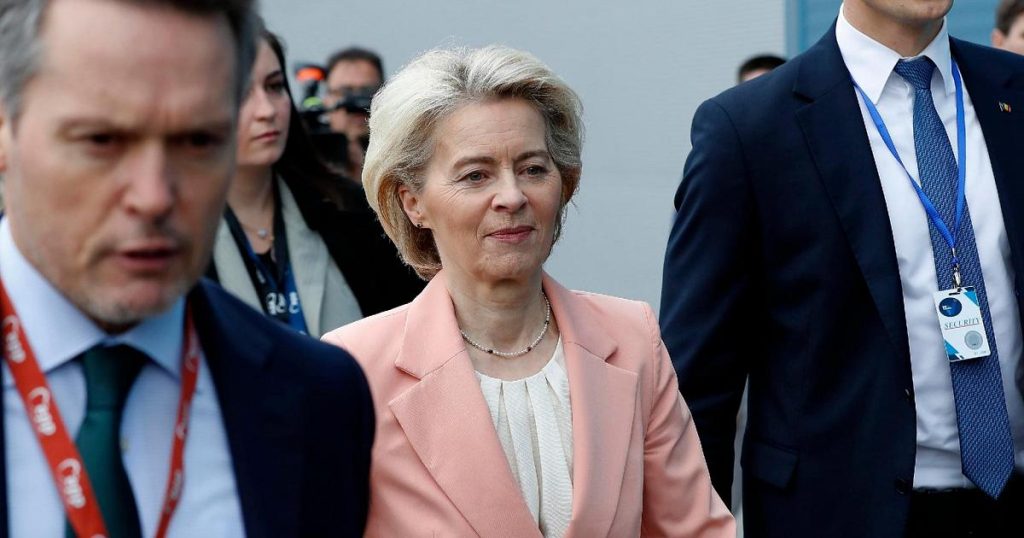Ursula von der Leyen recently visited Italy as part of her electoral tour across all European Union countries, although the trip did not go as smoothly as planned. While some, like Antonio Tajani, see her as a potential Spitzenkandidat, others within the party are hesitant to fully support her. The Italian government, in particular, views von der Leyen as a challenging candidate. Matteo Salvini has outright rejected her, and Giorgia Meloni has had to soften her stance on supporting von der Leyen. The dynamics within the Italian government are complex, and von der Leyen faces obstacles in gaining full support for her campaign.
Von der Leyen’s visit to Italy was arranged upon the invitation of the local PPE representatives, Forza Italia. She was supposed to participate in the opening of Forza Italia’s campaign for the European elections, but she did not attend. This event was the only public meeting planned for von der Leyen in Italy, and its cancellation was a setback for her campaign. Despite this, she spent time with party leaders and ministers, as well as addressing questions from young supporters. The need for a pragmatic approach to climate issues was emphasized during her discussions with Italian officials.
The Italian political landscape presents challenges for von der Leyen’s campaign, as the PPE leadership is aware of potential tensions within the government regarding her candidacy. The League party is aligned with sovereignist beliefs, while Premier Giorgia Meloni is more open to collaboration with von der Leyen. Von der Leyen remains committed to the goal of forming a broad coalition of pro-European forces to address key issues facing the continent. However, the composition of this coalition and potential shifts within right-wing parties, like the entry of Viktor Orbán into the group of Conservatives and Reformists, could impact the dialogue between PPE and other parties in the European Parliament.
Von der Leyen approached her Italian visit with a philosophical attitude, understanding the specific political context of each country she visits. Despite the challenges she faces in Italy, she remains committed to fostering cooperation among pro-European forces to uphold democratic values and tackle current European challenges. The debate surrounding her candidacy is ongoing within the PPE, and the party is preparing for possible defections or shifts within right-wing parties that could complicate the formation of a cohesive coalition.
Overall, von der Leyen’s visit to Italy was met with mixed reactions from various Italian political factions. While some, like Antonio Tajani, have expressed support for her candidacy, others, such as Matteo Salvini, are openly opposed. The complexities of the Italian political landscape, with its diverse range of parties and ideologies, present a challenge for von der Leyen in garnering broad support for her reelection bid. As she continues her electoral tour across the European Union, von der Leyen must navigate these nuanced political dynamics to secure the backing she needs to lead the Commission for a second term.


